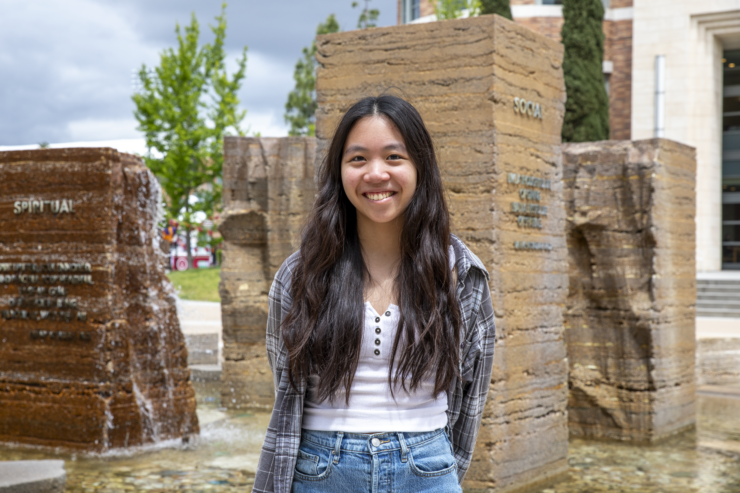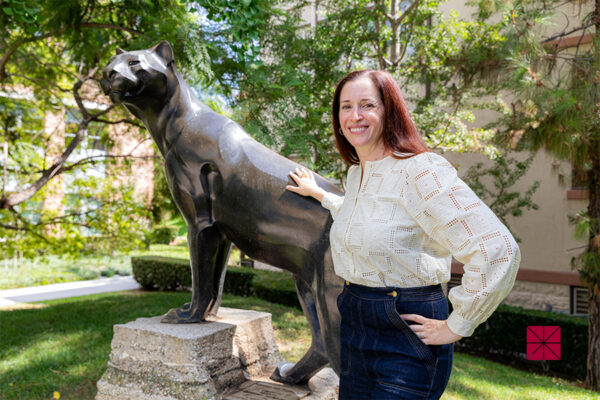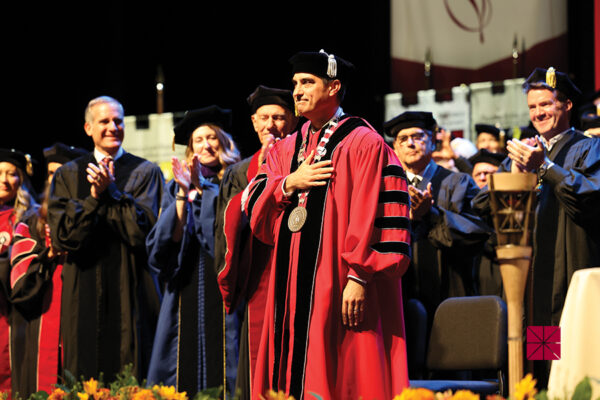Growing up in Chula Vista as a second-generation Taiwanese American, there were not many people in my environment that looked like me. I sometimes found it difficult to fit in with my peers, especially with English being my second language. My Asian heritage was something I wanted to suppress when I was a child since it was the one thing that made me feel like an anomaly. Yet when I visited extended family and I struggled to communicate with my grandparents in my native tongue, I felt ashamed of how much my culture had been erased by spending so much time learning English at school. To this day, my Asian American identity feels like a constant battle between the two worlds I am immersed in, with no balance that feels right to me.
Starting a new chapter of my life at Chapman University in fall 2021, I found myself in a space where I saw more people that looked more like me, especially in my small cohort of students from the Accelerated Pre-Pharmacy Experience Program (APEx). I couldn’t help but
notice how many Asian Americans decide to pursue a STEM related major. It made me wonder about the experiences of other Asian Americans, how they felt about their complex identity growing up, as well as what it had to do with their STEM identity. Although Asian American students are often considered overrepresented in STEM, there remains a need for more studies on how inequities may impact our navigation and identities in STEM.
With a combination of some free time over the summer break of 2023 and my growing curiosity on this topic, I found myself working on a project in Dr. Jeremy Hsu’s biology education research lab, exploring the experiences of Asian Americans in STEM. As an Asian American in STEM myself, I resonated with the participants of this project and saw myself in their shoes as I dug through and analyzed the data. I also had the amazing opportunity to collaborate with other curious-minded Asian American students from Carleton College and UC San Diego on this project. I became very passionate about my research and continued on with it after my summer break had ended, into my years as a Doctor of Pharmacy student.
I believe it is safe to say that many Asian Americans, including me, have experienced some level of racism, whether that is internalized racism, microaggressions, stereotyping, etc. Navigating through these experiences can look different between each individual, and the way it impacts one’s sense of belonging and identity can vary tremendously. Asian Americans are often treated as a monolith of identities and are subject to stereotypes derived from the model minority myth.
Although the analysis of the data is still at an early stage, my team and I have started to notice patterns in how Asian American students in STEM respond to racism, as well as how it impacts their STEM identities. While almost all students were aware of the stereotypes surrounding Asian Americans in STEM, individuals differed in how this impacted their view of themselves as STEM students. For instance, some students developed internalized pressure on themselves to uphold certain stereotypes, while others built up a sense of resistance towards these stereotypes.
As we move through this project, I hope to shed light on how the experiences of Asian Americans in STEM can shape a person’s identity, their journey in STEM and the ways they navigate through hardships. I also hope to make others aware of the challenges experienced by Asian Americans and understand the possible negative impacts on our identities due to the model minority myth perceiving us as a monolithic group. With such uniqueness and complexity, I truly believe that no two Asian American experiences are the same and that each experience should be considered and heard. By raising awareness about this topic, I strive to serve as a voice for Asian Americans at Chapman, promote equity and help build a more understanding environment for minorities.




